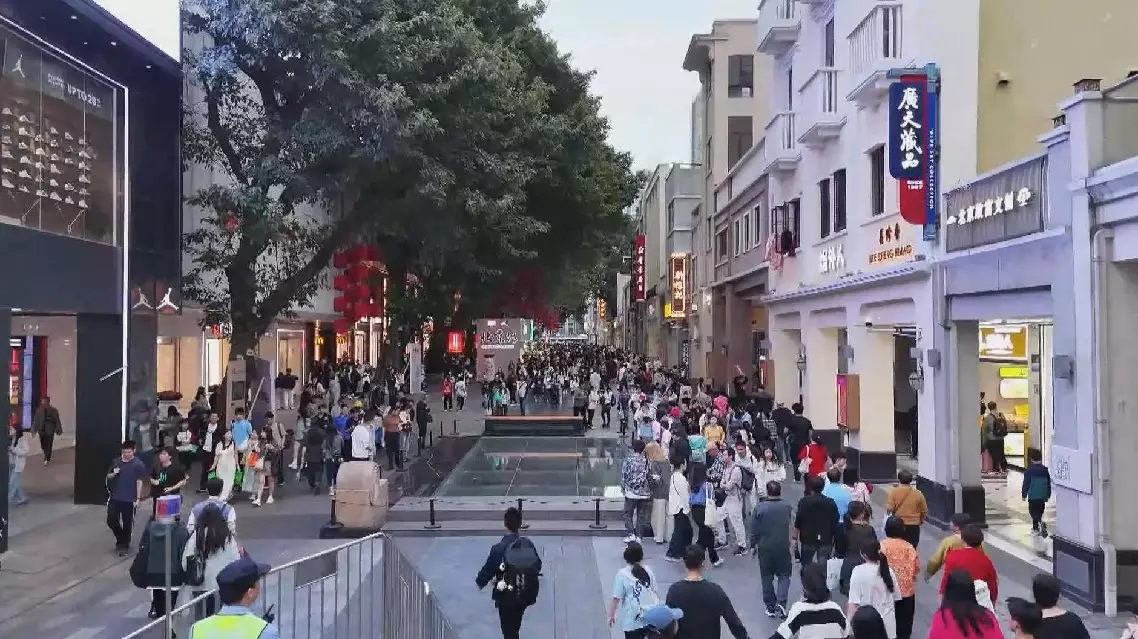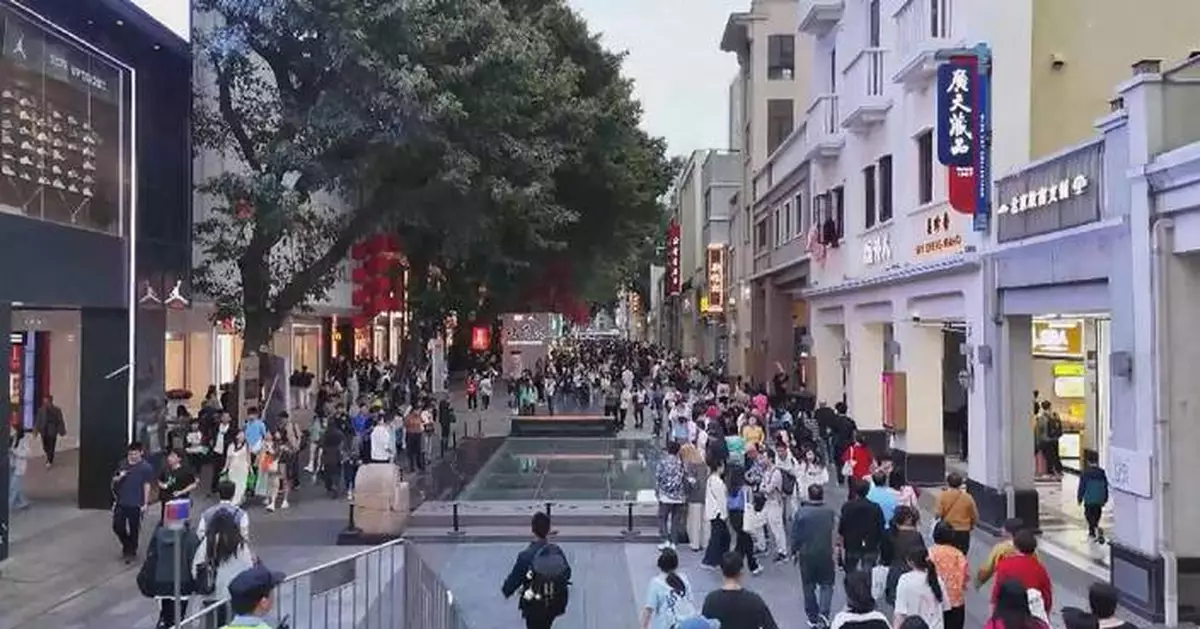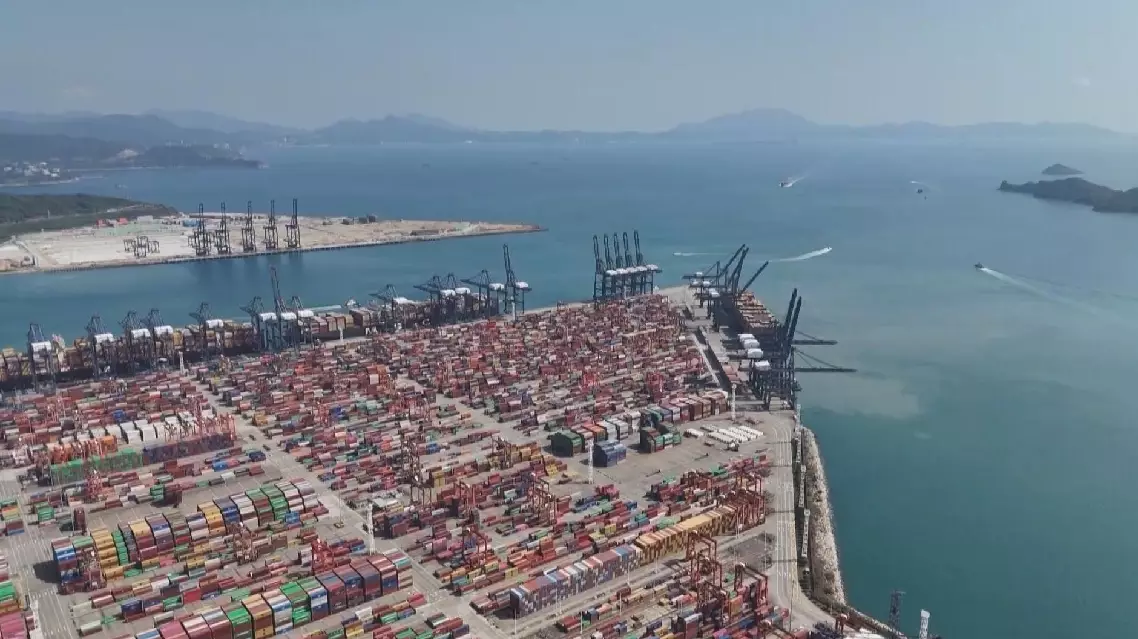China's Finance Minister Lan Fo'an outlined key fiscal measures on Thursday designed to stimulate domestic consumption and drive economic growth, with a focus on increasing subsidies, expanding the trade-in policy for consumer goods, and enhancing social security benefits.
Speaking at a press conference, Lan emphasized the government's commitment to boosting consumer demand as a central component of its economic policy.
"This year, the Communist Party of China Central Committee has placed a stronger emphasis on boosting consumption. Key measures include increasing direct subsidies to consumers and expanding the scope of the trade-in policy for consumer goods, all aimed at stimulating consumer demand. A total of 300 billion yuan (about 41.3 billion U.S. dollars) in ultra-long-term special treasury bonds has been allocated this year, double the amount allocated in the previous year," said Lan.
Lan also reflected on the success of last year's fiscal policies, saying that the government had allocated 150 billion yuan (about 20.7 billion U.S. dollars) in ultra-long-term special treasury bonds to support a trade-in policy for consumer goods, stimulating sales in key sectors, including automobiles and home appliances, which saw total sales exceed 1.3 trillion yuan (about 179.2 billion US dollars). The policy was well-received by the public and demonstrated its ability to stimulate consumer spending.
Looking ahead to 2025, Lan said that the government aims to better coordinate existing policies with new initiatives, ensuring a balance between addressing immediate consumption needs and supporting long-term economic growth.
A key aspect of this year's fiscal strategy is the expansion of the trade-in program. In addition to automobiles and home appliances, products such as mobile phones and tablets will now be eligible for subsidies, reducing shopping costs for consumers, Lan said.
To ensure the policy's immediate impact, the government pre-allocated 81 billion yuan in funds before the Spring Festival in January, enabling consumers to benefit from the program without delay.
Lan also highlighted the government's ongoing efforts to increase investment in sectors that directly impact people's livelihoods.
"The government is significantly increasing investment in sectors that directly impact people's livelihoods, ensuring greater stability in household incomes, a more robust social safety net, and a strengthened capacity for consumption. At the same time, it is enhancing incentives for local governments to improve the consumption environment," Lan said.
Regarding vulnerable groups, Lan detailed the government's plans to support the elderly, children, and low-income residents. Basic pensions for urban and rural residents will be increased, benefiting over 300 million people.
The government will also enhance support for elderly care services, introduce new child-rearing subsidies, and establish a new funding system for preschool education, which will benefit millions of families, Lan said.
Further measures include increased funding for student financial assistance, expanding the reach of existing policies to better support students from low-income backgrounds.
On the employment front, Lan outlined plans to assist workers facing employment difficulties. The government will introduce subsidies and training programs aimed at improving job stability and increasing access to reliable income sources for low-income groups.
In terms of optimizing consumption supply, Lan outlined a comprehensive approach that includes further promoting the construction of pilot cities for modern commercial trade systems and county-level commercial development initiatives.
The central government has also increased subsidy funds this year to encourage local governments to invest more in developing new business models and consumer environments. This will include the creation of international consumption cities aimed at enhancing the consumer experience and increasing convenience.
"To further stimulate consumption, the government is strengthening the alignment of fiscal and financial policies. This includes the introduction of two new loan interest subsidy programs. One provides fiscal interest subsidies for personal consumption loans in key sectors, alleviating immediate expenditure pressures. The other targets sectors closely linked to daily life, such as catering, accommodation, healthcare, elderly care, childcare, and domestic services. By offering interest subsidies on loans to businesses in these sectors, the government aims to reduce financing costs, thereby increasing the availability of high-quality services," said Lan.

China's finance minister details fiscal measures to boost consumption, economic growth






















































